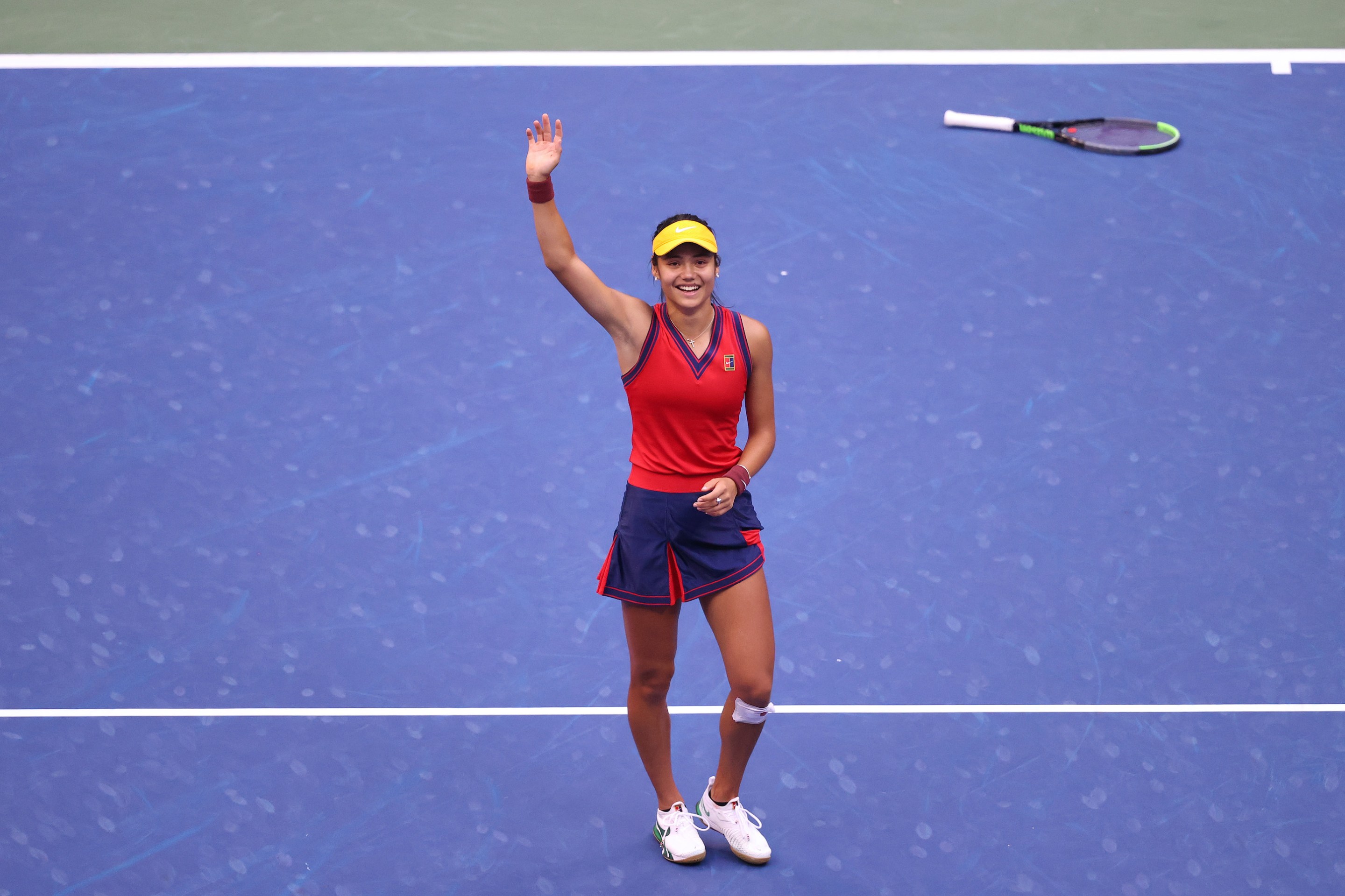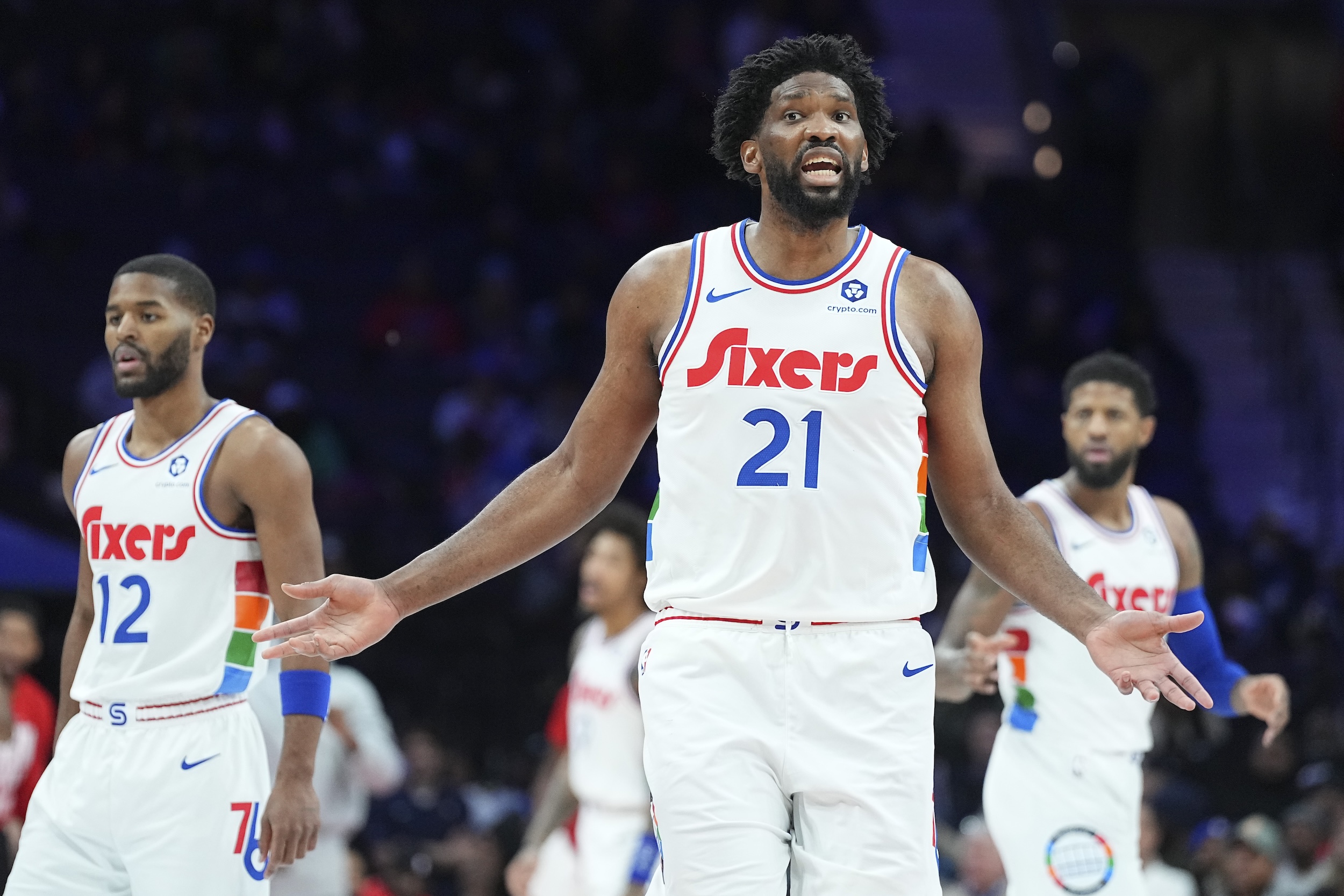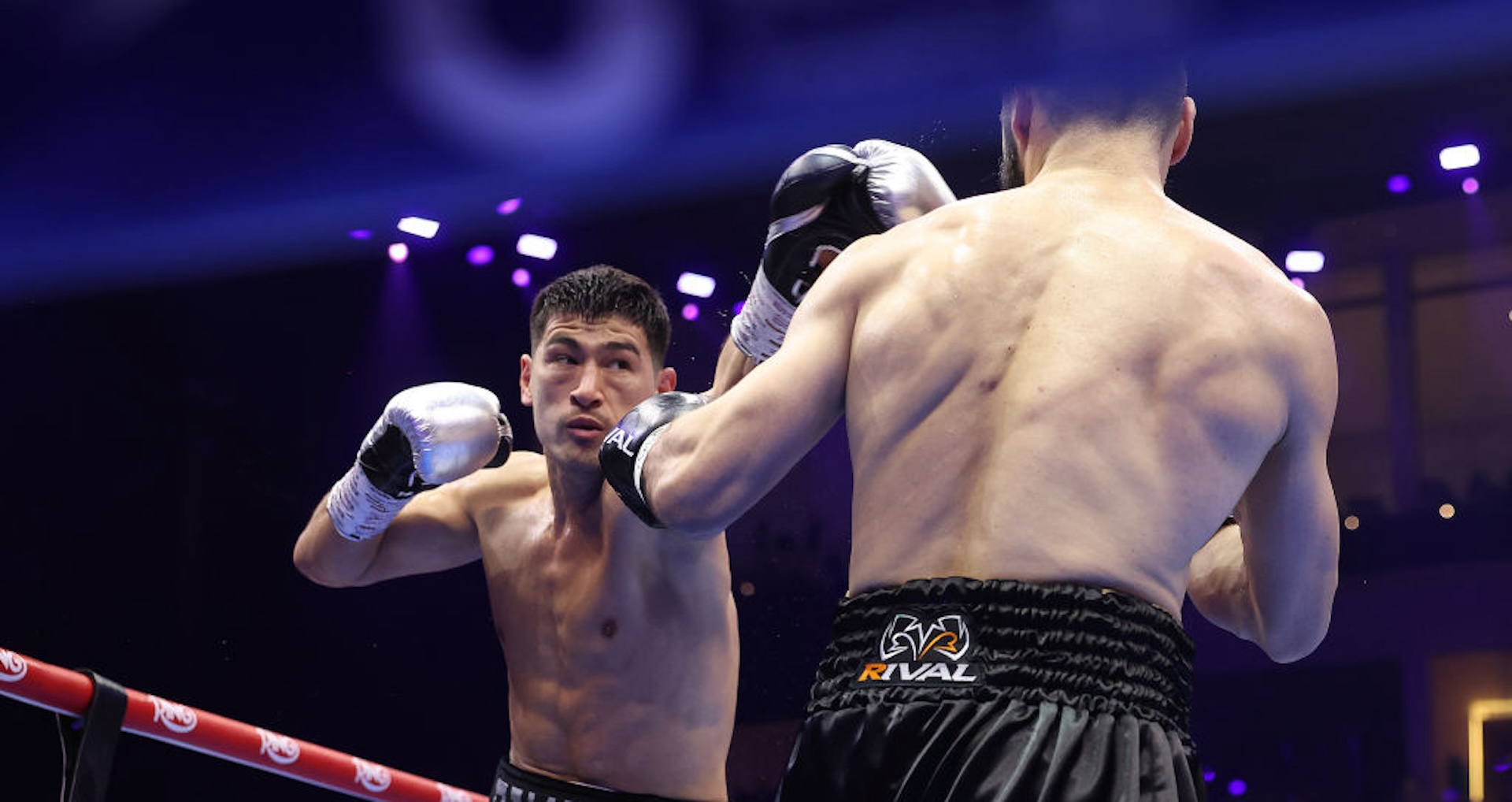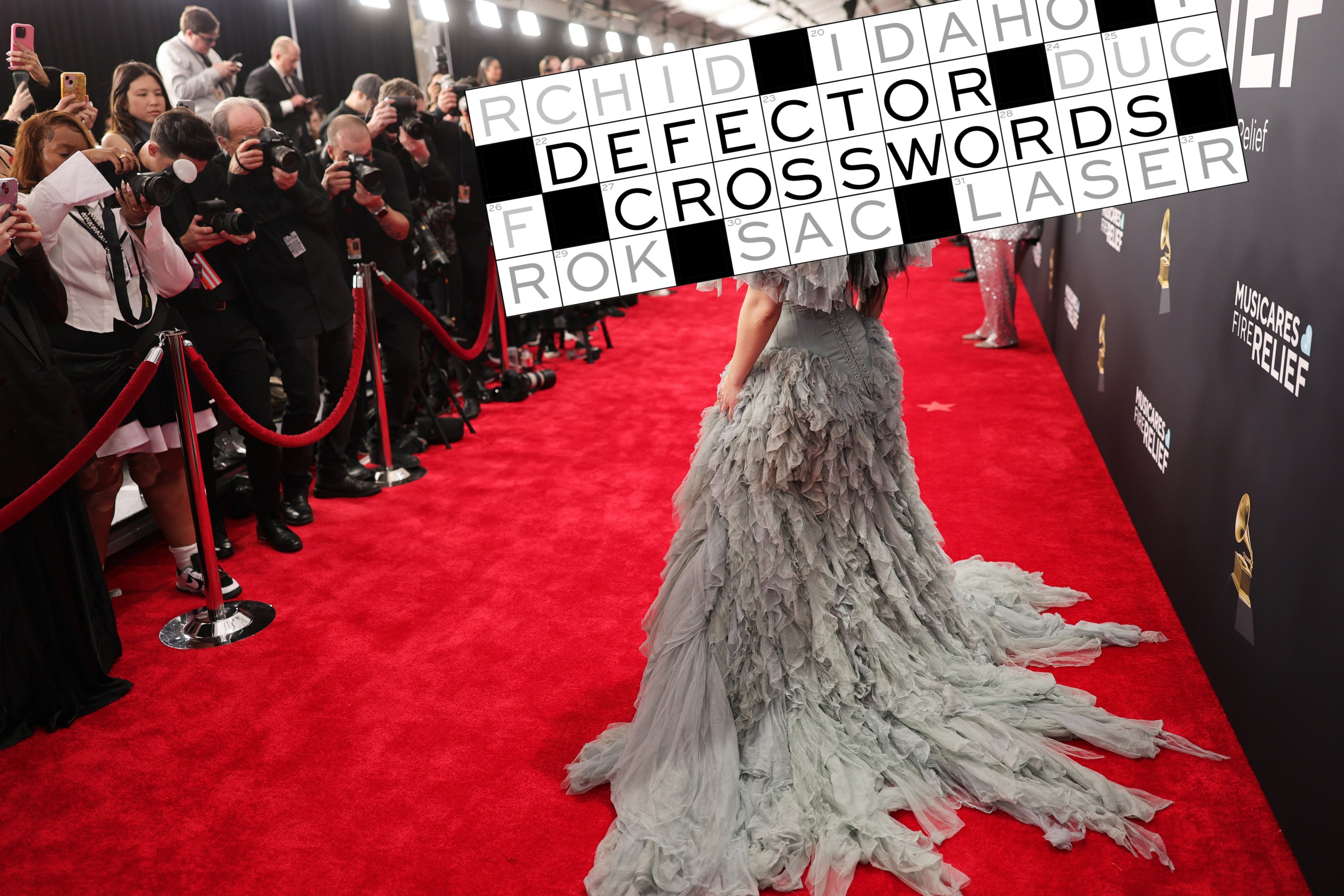Usually a tennis player checks off a few basic boxes before winning a major trophy. At minimum, one of these boxes might read "winning literally one tour-level match outside the majors." You know, the matches that fill out all those weeks in between the four Slams. Many more human beings win those matches than ever win a major trophy. The 18-year-old Emma Raducanu chose to skip this step, however.
Raducanu played her first WTA Tour match this June in Nottingham and lost. In July she made a startling run to the fourth round at Wimbledon as a wild card, but those victories don't check the box in question. At the start of August she played her second-ever WTA event in San Jose, and lost in the first round there, too. A couple more wins at the ITF and Challenger tiers padded out the summer, but Raducanu wasn't exactly cruising through these lower levels of competition either. Then at the end of August, she entered qualifying rounds at the U.S. Open, and won 20 straight sets of tennis, hacking easily through higher and higher levels of competition, everyone from the world No. 285 to the Tokyo Olympics gold medalist, until she was holding the U.S. Open title on Saturday. What is the appropriate analogy here? Winning the Nobel Prize in Literature before ever publishing a paragraph?
There are a number of ways to put her ascent into context—Raducanu is the first qualifier ever to win a major title on either tour, for example—but this is the absolute strangest detail in my eyes. She had yet to even get into the rhythm of traveling and winning against fellow professionals. It makes the accomplishment loom large even in the context of a tour that semi-regularly sees teen champions break out of nowhere, some of whom build on that initial success (2020 French Open winner Iga Swiatek), some of whom are stymied by injuries (2019 U.S. Open winner Bianca Andreescu), and some of whom recede into the rank and file (2017 French Open winner Jelena Ostapenko). Given the brevity of her career, Raducanu did not really have a chance to enter the rank and file before she rose well above it. She will be ranked No. 23 in the world this week, after starting the season well outside the top 300.
It's particularly compelling given the ending of Raducanu's only previous major tournament. At Wimbledon, the British press had seized on the teen's early upsets and set its wretched hype machine to full blast; she retired in the second set of her fourth round match with breathing difficulties. The next day, she speculated that the incident resulted from a "combination of everything that has gone on behind the scenes and the accumulation of the excitement and the buzz." Perhaps she was not ready with respect to psychological prep. With respect to tennis skillset, though, she appeared years ahead of schedule, in particular with her state-of-the-art return game, which had tinges of Novak Djokovic in its uncanny anticipation and ferocious cuts at the ball. Was any of this for real? Lots of players look unbeatable for a week.
The U.S. Open answered that question conclusively: Hell yes, it is for real. Raducanu did not let a single opponent into a single match in New York; only once, in the second qualifying round, did she even let an opponent win five games in a set. Presented with an opponent who crushed every ball and covered every corner, No. 11 seed Belinda Bencic and No. 17 Maria Sakkari looked like they were the ones playing in their first-ever U.S. Open. It was the kind of title run so effortless that it is, counter-intuitively, hard for me to suss out how good the player is, how well they can adapt once their preferred game plan is challenged.
By far the most compelling matchup was Raducanu's 6-4, 6-3 final victory over Leylah Fernandez, played on a court stamped with "9/11/01," a date on which neither finalist existed. While Raducanu had issued straight-set dismissals, Fernandez, who turned 19 midway through the Open, survived a gauntlet of four three-set battles against seeded players. Athletes and all manner of public performers are often encouraged to "enjoy the moment"—gee, thanks—but this might have been one of the few instances of my sports-watching career where this cliché seemed to have been internalized, as both players swung freely and constructed some of the most ambitious rallies of the whole tournament. Fernandez was even smiling unabashedly after points. This is the happiest vision of tennis, played by two players who, at least for now, seem to recognize tennis as a job when it comes to training, but a game when it comes to competition.
Looked at in a vacuum, either of these performances would have seemed genius, but the direct juxtaposition drew out those things that the eventual champion does better. Judging from the small sample that is her career, Raducanu executes pretty much every shot in tennis at the highest level. One day she might be one of those rare players who sits near the top of the tour in both serve and return. Fernandez, whose game is defined by agility and shot-making, doesn't pack as much of a punch on a shot-by-shot basis, and at 5-foot-6 cannot rely on her serve like the 5-foot-9 Raducanu can. Fernandez was broken four times in the match, only returning the favor twice; Raducanu won an otherworldly 49 percent of return points in the match, a notch above Fernandez's excellent 39 percent. Serving at 5-4 in the second set but down break point, Raducanu slid into a backhand, dragging her knee across the surface of the court and drawing blood, which required a medical timeout. The last time she took a medical timeout in a big match, she left the court and didn't return. This time, Raducanu came back bandaged and served out the U.S. Open.





